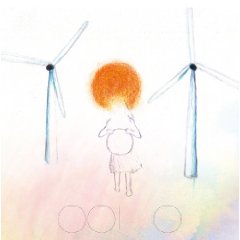There’s been no more vital a presence than OOIOO over the last decade in music, even if too few people got to hear them. Every note of their mega-modern, rhythm-driven, post-genre pop bursts with life; each new record scuppers your expectations of music – perhaps even of culture – itself.
It’s rare, and usually a cop-out, to say so, but this is music so complete that it just is. Pile up the praise (it’s fun, virtuoso, syncretic, energising) and you’ll sound vague; pull it apart and you risk making it appear dry. It’ll make you dance, rock out, grin from ear to ear, and it’ll make your heart glow; when you ask why, you might notice that it dissolved divides between instinct and intellect, pop and experimentalism, simplicity and complexity. Say anything about it and it’ll give you the slip.
As shorthand: imagine an ultramodern Slits with superpowers. While OOIOO have been praised for their eclecticism, a list of styles they draw from won’t take you any closer to their sound. Beneath the lyric-free or polyglot vocals you’ll hear hints of tribal drumming, cosmic jazz, no wave, TV theme pop, prog, funk, power rock, electronica or Middle Eastern music. But unlike their splice-happy internationalist contemporaries, Yoshimi P-We (yes, that Yoshimi, Flips fans) and her ever-evolving, usually all-female line-up make everything feel as natural and direct as a sense memory. The fresh-aired spaces and joyous pep of Kila Kila Kila and Green and Gold, like the unfettered neo-tribal march of Taiga, are the result of a sagacious outlook uncluttered by theory. You won’t find another band that combines caprice and dexterity to such electrifying, uplifting ends.
On their sixth album the ground shifts beneath your feet even more often than usual. It begins with a confident stomp marked by off-beat “la”s; broadens into rounds of simple guitar lines; boom-y beats blow the blood vessels in your brain; a primal rhythmic maelstrom takes over; sweet vocal rounds bring echoey respite; then it builds back to its hearty beginning. And that’s just the first track, ‘Uda Hah’.
End to end, Armonico Hewa scoots you through incessant, instant-hit reconfigurations. ‘Irorun’ builds rhythm from vox, like a barbershop quartet schooled in modernist architecture. (Incidentally, where most guitar bands would consider putting a dubstep bassline on their record adventurous, Yoshimi has apparently been checking out Ainu, Inuit and Hungarian female choral music.) ‘Polacco’ is a virtual-African dance craze with dubbed-out waves of voice and noise breaking on top. ‘Kipepeo’ sounds equally informed by The Raincoats and traditional Japanese music. On ‘O O I A H’, voluble sprites run rings around The Who. ‘Hewa Hewa’ is pop sung in tongues, and uses quasi-tribal beats in the way jungle used James Brown’s funky drummer. ‘Orokai’ could be the clarion call of a day-glo alien funk clan. The goodbye gift is ”Honki Ponki’, a conga-happy cover of a Turkish radio hit from 1980.
The title pairs ‘Armónico’ (Spanish for ‘harmonic’) with ‘hewa’ (Swahili for ‘air’) to create ‘air in a harmonious state’. That might seem an odd handle for a record which chops and changes so much and drives onward with such force, but it fits. You can’t hear the joins because there are none.
While Eye from Boredoms – the more process-driven, ideas-led band Yoshimi is still an integral part of – has identified his Shinto upbringing as a formative factor in his approach to music, OOIOO err toward a kind of unselfconscious animism. The life they find in – rather than the formal restraints of – other music determines the shape of their own. The classically trained Yoshimi’s recollection of being introduced to the drums at the age of 18 might even be deceptively revealing: “Hit something and it makes a noise. It really felt good feeling the vibrations coming back through me.” For all their musical mastery and cultural rapaciousness, OOIOO know how to just hit it.


